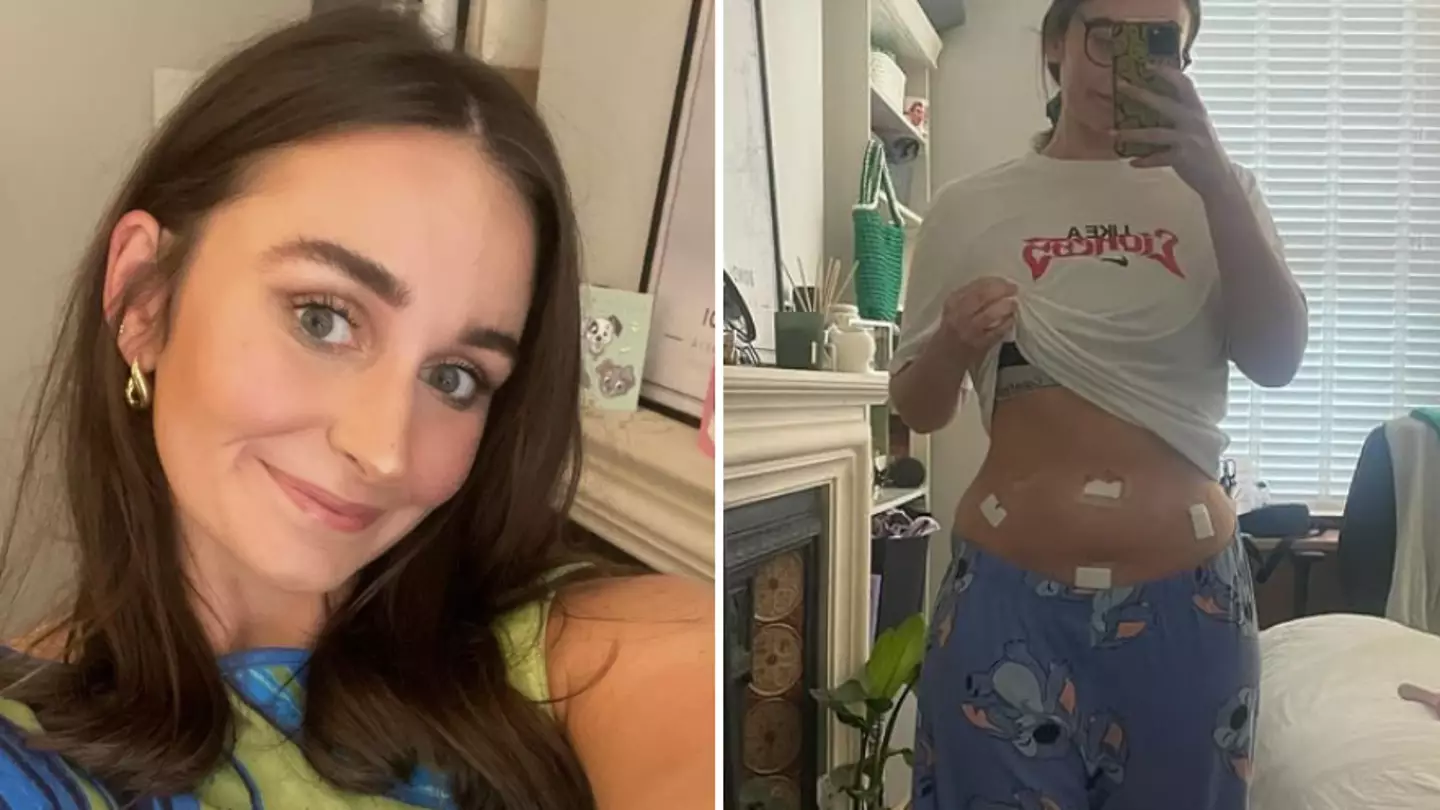
One woman who was left 'in excruciating pain' has opened up about the incredible 'relief' she felt when she finally got a diagnosis after years of trying.
Jess Battison, who hails from London, spoke to us about the extremely 'long process' of appointments, trying out treatments, having tests and scans before she, after 14 whole years, was correctly diagnosed with endometriosis.
Endometriosis is a medical condition that affects around 200 million people, but it is extremely misunderstood.
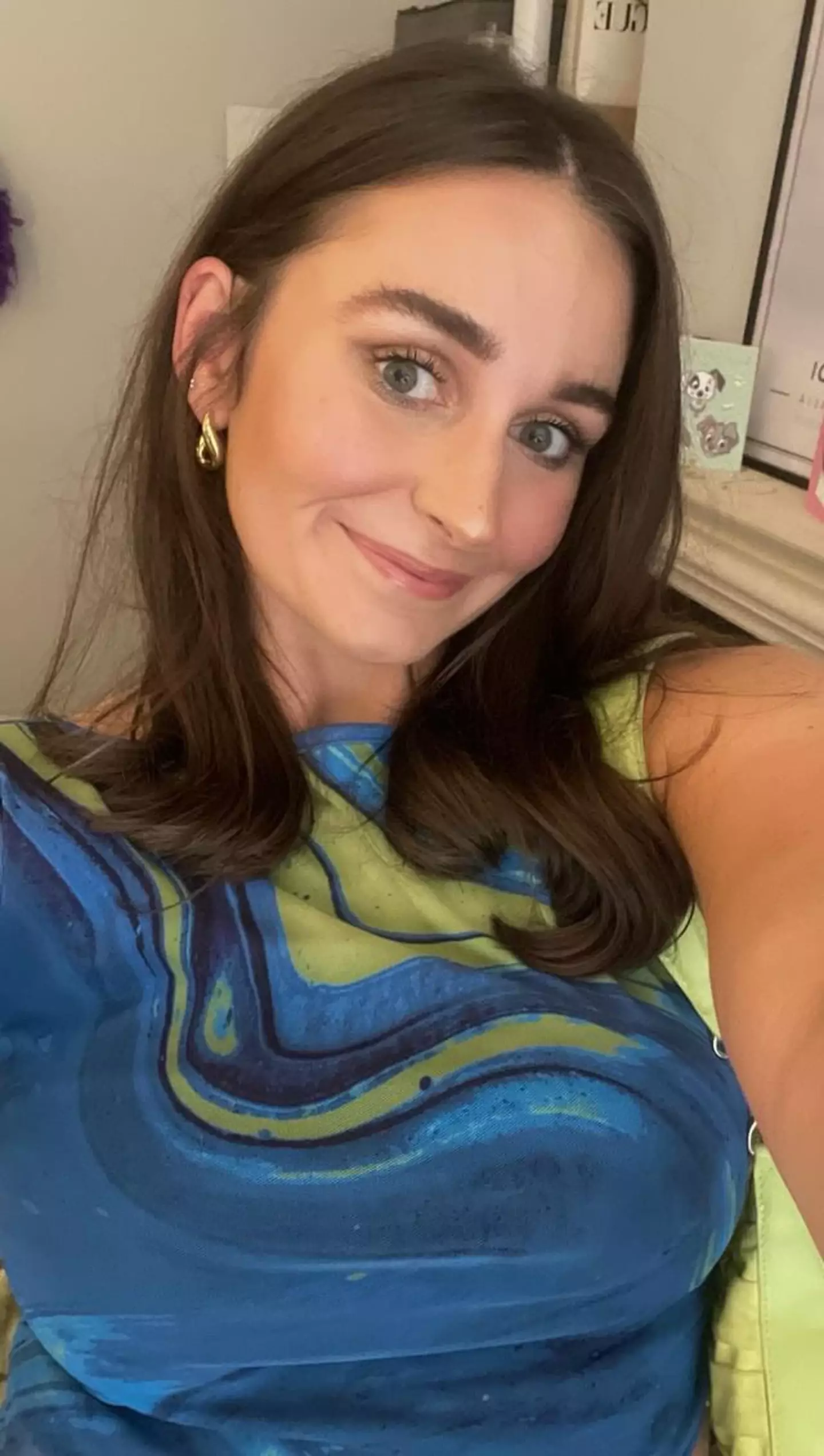
The chronic condition - which affects around 1 in 10 women of reproductive age in the UK - occurs when tissue from the womb grows around the ovaries and fallopian tubes and for some people, it can reduce their fertility.
Advert
It can affect women of any age once they've started menstruating, including teenagers, and cause some pretty serious pain.
Despite the severity of it, funding unfortunately remains limited and a significant number of patients can be left undiagnosed for an average of 10 years.
So to held shed some light on the issue, Jess talked to Tyla all about getting her diagnosis, how long it took and how it changed things both physically and mentally for her.
"Overall, it took about 14 years for me to get a diagnosis," she shared.
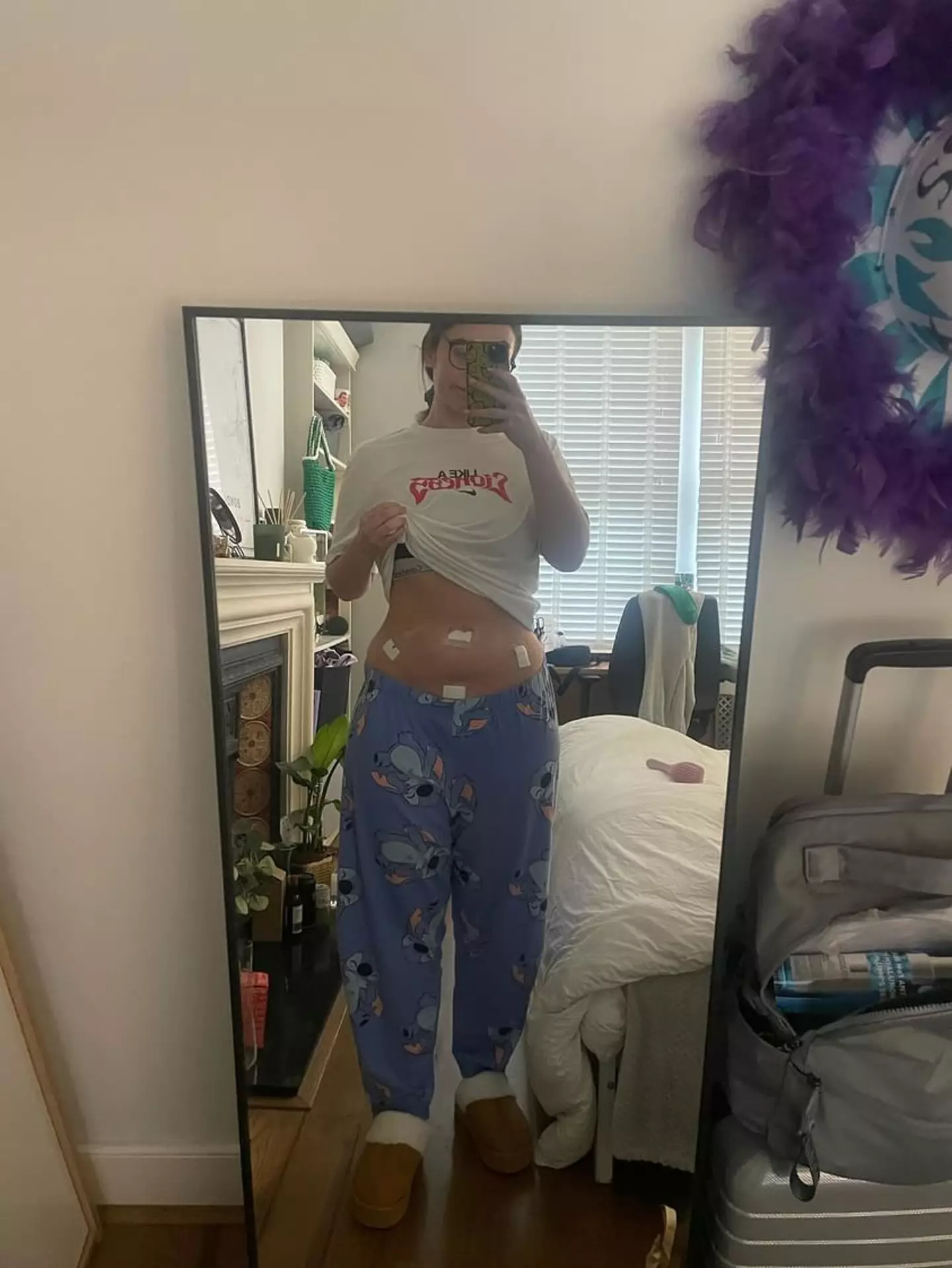
Jess got her period at the beginning of year six and was put on painkillers like codeine and co-codamol in year seven.
Advert
She continued: "There was a lot of talk about a 'surgery when I’m older' but I was too young and understandably, very freaked out and confused.
"When I was about 14, my GP decided to put me on the injection, stopping my periods purely to get me through my GCSEs.
"After two years of that, it took a while for my period to start again and to settle back into routine."
Then while she was at university, Jess admitted she 'couldn't be bothered' dealing with her symptoms - something she says 'annoys' her now.
Advert
"I think I knew how serious the situation potentially was and feared any kind of op as I’m terrified of hospitals," she revealed. "I was just so fed up with being dismissed by doctors and having endless appointments that I just pretended there wasn’t a problem."
However, once she entered the world of full-time work, Jess realised this was 'not attainable at all' after finding that she needed to have to lie down in the office bathroom 'crying in pain' or 'nearly fainting' at her desk.
This is where things 'sped up' for her.
She explained: "It shouldn’t be this way but with a lot of persistence and backing myself, it took just over year for me to be diagnosed."
Advert
The first GP she saw misdiagnosed Jess with PCOS and dismissed her but, a couple months later, a second one went through her records and found a note from her old GP when she was a kid saying that if her 'symptoms continued into adult life I should be considered for endo'.
"To be honest, it made me really angry that it had just been sitting there but thankfully, that GP from back then had helped me out," she recalled.
"This time round, with that to back me up, I insisted I just wanted to know what was wrong with me rather than adding to the long list of treatments I’d tried out when it had been so long already."
After that, Jess was referred to the gynaecologist after waiting about five months for the appointment where she had further ultrasounds.
Advert
Luckily, the person was an endo specialist and was very confident she had it but endometriosis cannot be diagnosed without surgery.
Jess then spent another seven months of a wait list - about a year since the GP had originally referred her to the hospital.
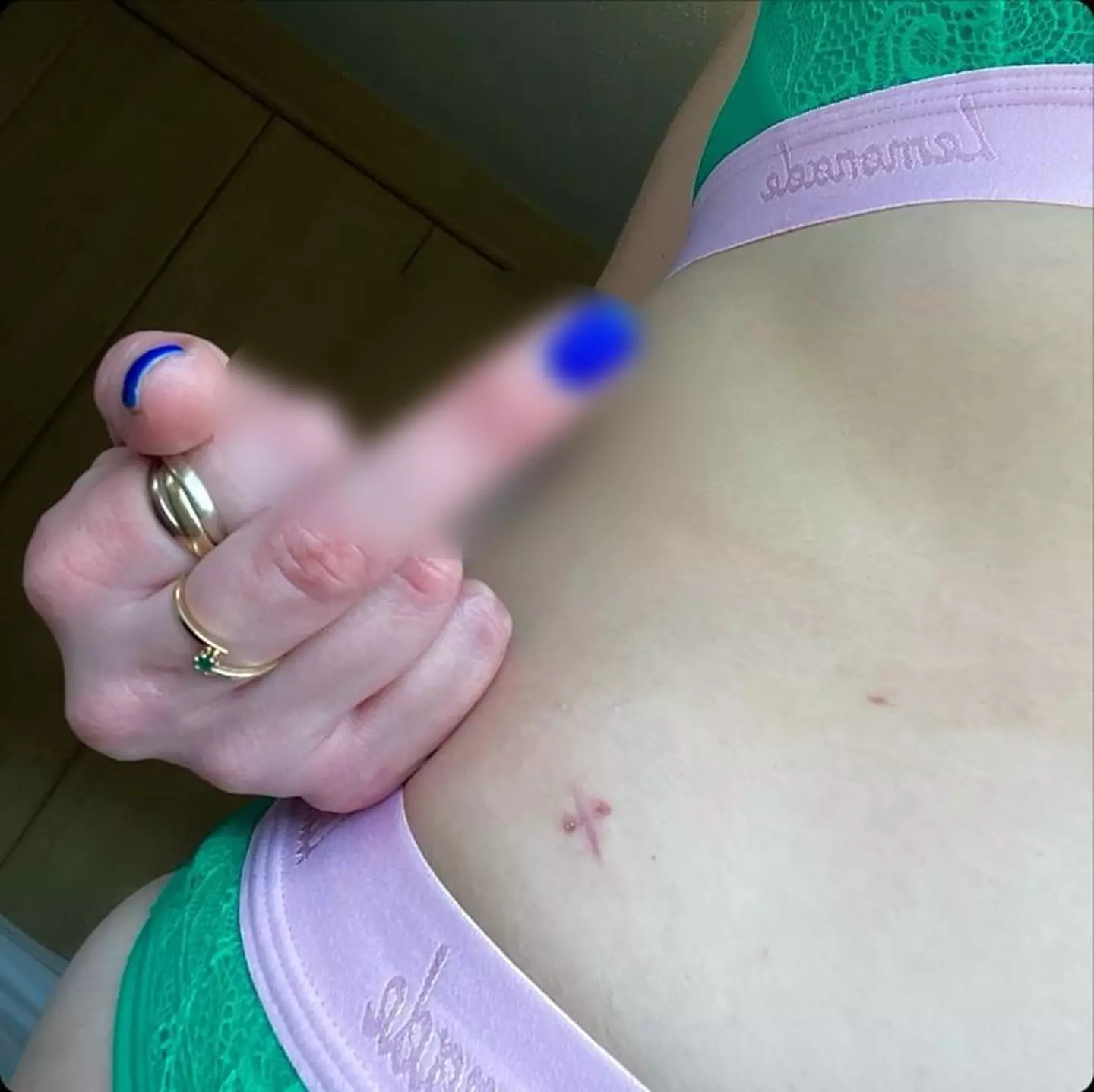
The appointment was in mid-January this year and she was given her diagnosis 'immediately' - finally getting the confirmation she had 'a lot' of endo growing in multiple areas as well as a condition called adenomyosis.
She described the abdominal surgery as 'really intense' - something that really didn't helped with her hospital phobia.
"I think it took around two hours, including the camera going in and the extensive excision of endo growth," Jess told us. "I was in so much pain after and was in the hospital for a few hours being given fentanyl and remained on strong painkillers for the following days.
"The recovery was really rough and involved a lot of tears, pain, bloating and generally feeling like s**t."
However, with all that said, Jess found that, as time went on, she's already started 'feeling the benefits' of surgery.
"The main thing is that I feel relief, and I feel justified," she said. "I wasn’t just making it all up, I wasn’t being over dramatic, I wasn’t looking for attention. I really have been suffering all this time and now I finally feel heard.
"I think that’s the hardest part, it’s so misunderstood and undiagnosed that you almost feel ashamed to be thinking there’s an actual problem."

Talking about the warning signs before going to the GP the first time round, Jess told us: "I was so young and my parents were obviously concerned that their not even teenage daughter was waking up screaming and crying in pain.
"I was missing a lot of school and found it really embarrassing – there was a boy I was friends with that began tracking my days off and went round telling everyone how pathetic I was because I was clearly off sick for my periods.
"I was so embarrassed and just so confused as to why it was so bad for me and not others. "
In terms of her symptoms, which can look different for a lot of people, Jess would get the shakes, have hot flushes, get light-headed and dizzy, be in excruciating pain, have fatigue, struggle mentally, feel pain during sex, bleed extremely heavily with clotting, had lower back and pelvic pain, and suffered from nausea and sickness.
She was also told she had IBS because of the stomach issues and often suffered insomnia.
While she 'struggled' to manage a lot of her symptoms, Jess said that getting a tens machine 'completely changed the game', adding: "It’s the first time I felt real pain relief and with that out of the way I felt I could often push through a lot of the rest.
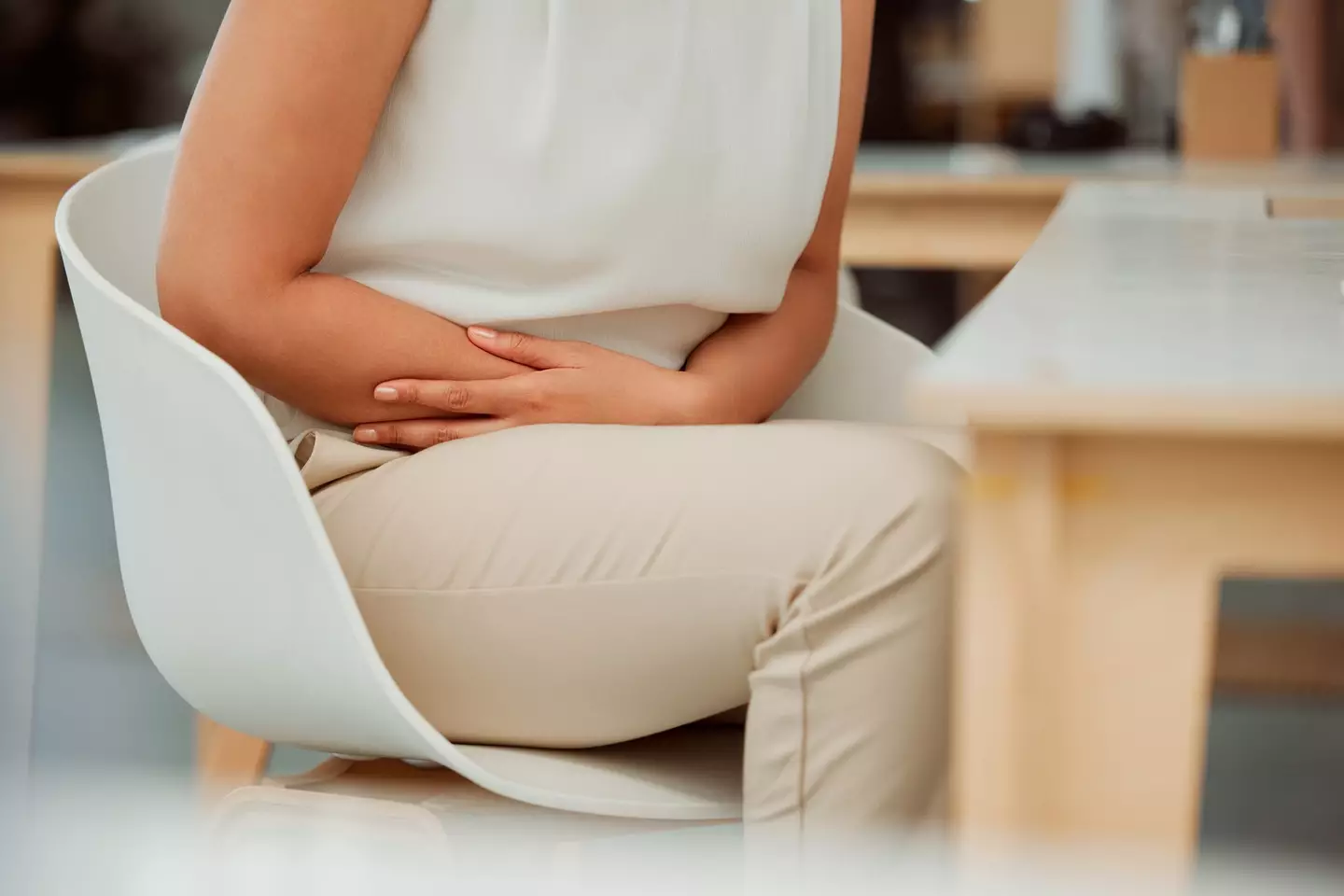
"Another biggie is having ibuprofen as well as paracetamol – endo is an inflammation, and paracetamol alone didn’t do much.
"Eating well and getting plenty of iron and stomach-friendly foods as well as plenty of water can help too."
She also explained: "Being open with those around you and with employers helps too, because the shame of it is unnecessary and helps with guilt of cancelling on friends."
So, how has getting a diagnosis improved her personal and social life?
"As I’m still in recovery I can’t quite do everything I did before but the thought of not having the guilt or embarrassment of cancelling makes me feel good," Jess told us.
She carried on: "Generally, I feel so, so much better about myself.
"My friends ended up having a go at me for 'gaslighting myself' before the surgery because I decided I probably didn’t have it and was just being dramatic.
"Now I know I have it quite severely and while it can and (realistically will at some point) grow back, I have such a positive outlook."

Jess added: "Yeah, there are things I could and potentially should be angry about, but I feel so relieved to just have a diagnosis.
"It’s quite bittersweet but I feel like I’m starting a bit of a new life after dealing with for over half of my life now – and all of my adult life so far."
She's now 'really excited' for what's next after feeling like she's got a 'new start' on things.
"It feels like so much more is possible and accessible to me," she shared. "Things seem a lot lighter now and I feel a lot happier with many of my friends saying I’m such much ‘brighter’ and they can see a change in me.
"Socially, I’m looking forward to not having to wipe out my calendar every time I get a period or pushing myself through plans while I’m suffering because don’t want to cancel."
And Jess' number one piece of advice is to 'back yourself'.
She told Tyla: "You’re the one who knows how bad it is and you’re the one suffering – no one can tell you otherwise on that. Other people saying things aren’t going to take your pain away.
"If you don’t feel that you’ve been listened to properly or given an adequate response, don’t just leave it.
"For me, once I started really committing to being heard, that’s when things started happening.
"Ask for a second opinion, or to see a different doctor – endo isn’t widely understood so it might just be a case that it’s not the best doc for the job."
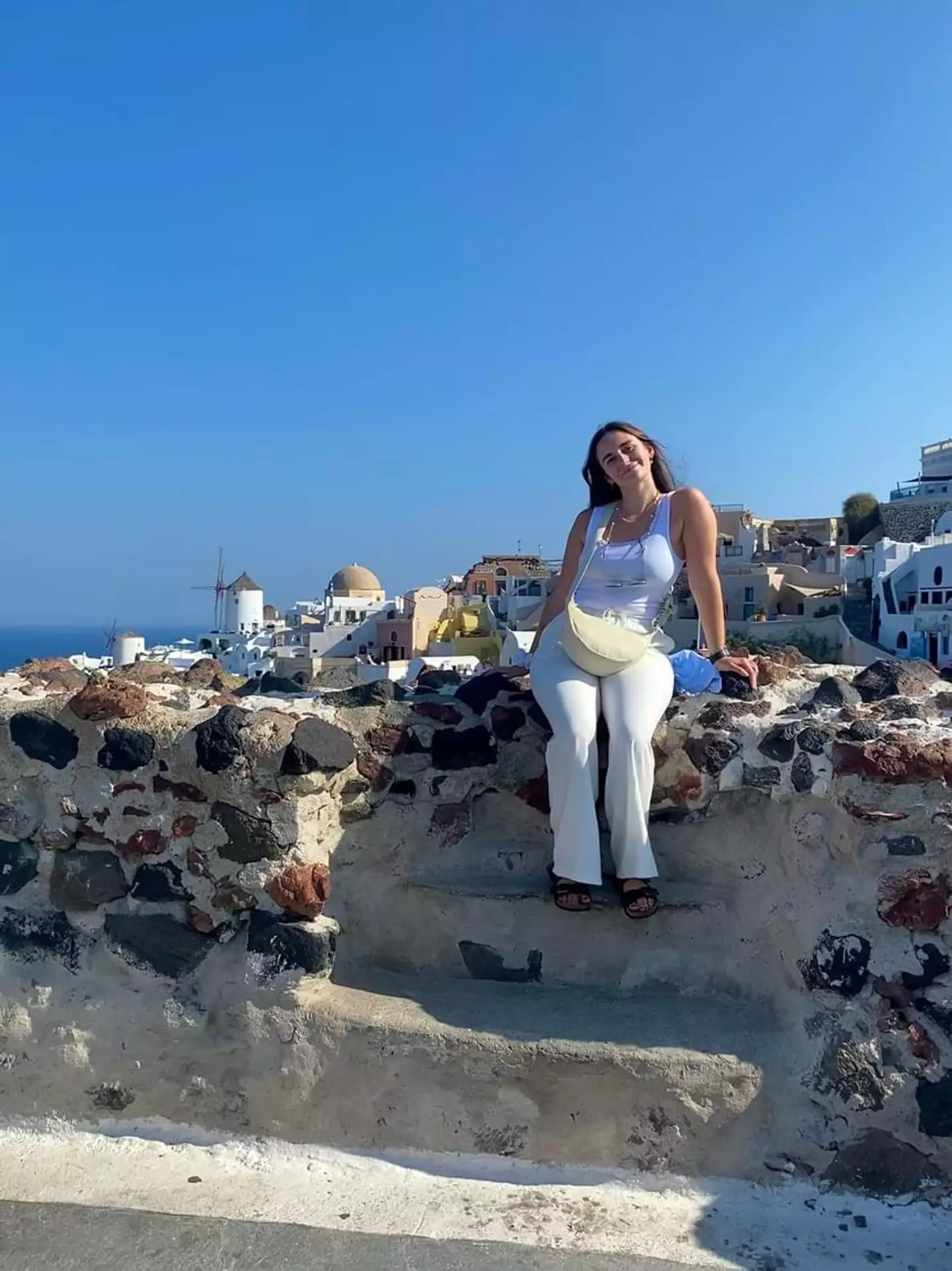
She also recommended writing down every symptom you have and everything you experience both during your period before and after 'even if it seems irrelevant it could be something'.
"And make sure you are the given the chance to list out all of these when you see your GP, as some of the symptoms could indicate to other issues," she noted.
Also, Jess says, do try out treatments GPS offer that seem right for you but if they don’t work for you, 'vocalise it' - don’t just give up on it.
"But as cheesy as it is," she resolved, "just don’t suffer in silence.
"I hugely regret leaving it for so long to go back to the doctors purely because of how fed up I was with the whole thing.
"Speak up and back yourself, having the right doctor listen to you could change your life."
If you have been affected by the contents of this article, please find more information and support via Endometriosis UK on their website, or call 0808 808 2227.
Featured Image Credit: SuppliedTopics: Advice, Endometriosis, Health, News, Real Life, UK News, Mental Health, NHS
